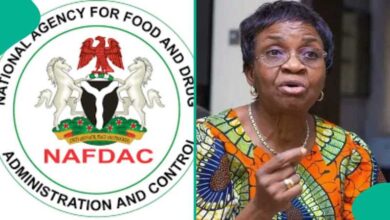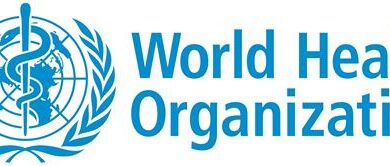COVID-19 Vaccination: FG Urged To Target Vulnerable Poor

Some argue that besides being old, they have underlying illnesses like diabetes and hypertension…
Elderly people in villages across the country have called on the federal government to give them special consideration in accessing the COVID-19 vaccine because of their vulnerability.
Some of them said besides being very old, they had underlying illnesses like diabetes and hypertension and were therefore susceptible to complications.
Medical professionals have also voiced support for special consideration for the elderly, saying scores of old people died in the villages due to COVID-19 complications.
The people interviewed said they could not register for the vaccination online as directed by relevant authorities, heightening fears that it would take long for them to be considered.
Muhtari Baba, 77, a farmer in Toro, Bauchi State, said he heard about the COVID-19 vaccination on radio. Baba said, “We have not been told how we would access the vaccine; and I want to get it. I thank God I don’t have any underlying ailment, but I know that COVID-19 is real.
“They said people should register using their phones…I don’t have that kind of phone. I pray government will make special provision for us.”
David John, 81, a retired soldier in Jos, said there was need for special consideration for the elderly living in villages.
John said, “This COVID-19 killed many of our contemporaries in the last one year because they didn’t have access to health facilities.
“I lost many of my friends and I believe it was as a result of COVID-19 complications. We thank God Nigeria has started receiving the consignment, but I think the timetable for administering it does not favour the rural poor.”
In Gombe State, Malam Musa Abdu Bamai, 65, of Unguwar Balu area in Dukku LGA, said, “I am a subsistence farmer with two wives and 15 children and residing in a rural area where healthcare services and other social amenities are very poor. As such, the government should first consider us alongside the health workers,” he said.
On his part, a resident of Biri village, Malam Umar Shehu, 62, called for fairness in the distribution of the vaccines.
“As a blacksmith and living in a village, I am still struggling to take care of my family, therefore getting the vaccine will help me get immunity from the virus and continue taking care of my family,” he said.
With an estimated population of about 18 million aged persons in the country, experts say Nigeria’s ageing population increased from 4.5 per cent in 1991 to about 10 per cent in 2018, noting that it was important for older persons to access quality healthcare and social services.
Phases of COVID-19 vaccination according to NPHCDA
The Executive Director of the National Primary Health Care Development Agency (NPHCDA), Dr Faisal Shuaib, said the vaccination process would commence with frontline health workers, their supporting staff and then strategic leaders during the phase one.
Dr Faisal explained that, “The phase two vaccination process involves vaccination of the elderly, from 50 years and above. This has been sub grouped into two, with the vaccination of 60-year-olds and above occurring first, followed by 50 to 59-year-olds. This will occur across all the 36 states and the FCT.
“The phase three vaccination process involves vaccination of those between 18 and 49 years with co-morbidities such as hypertension, diabetes, lung disease, other heart diseases and liver or renal disease. Individuals at ages 50 and above with co-morbidities would already have been immunised within their age group.
“The phase four vaccination process would involve vaccination of the rest of the eligible population between ages 18 and 49. It is worthy to note that at each phase of the vaccination, the level of preparedness of the states would be assessed before vaccines are deployed, and accountability measures have been put in place to ensure strict compliance to the vaccination process.”
He further said eligible people for vaccination that had not registered electronically would be assisted at the designated health facilities and would be vaccinated.
Vaccine should not be politicised
The President of the National Association of Resident Doctors (NARD), Dr Uyilawa Okhuaihesuyi, has advised the federal government to stick to the roadmap and not politicise the vaccination process, adding that vulnerable Nigerians should be considered in accessing the vaccine, especially during the second phase.
While appreciating the federal government and NPHCDA for the roadmap, Dr Okhuaihesuyi said if strictly followed, it would bring a lot of credibility to the health ministry and the agency.
He further said there was need to sensitise Nigerians, particularly those in the rural areas, on the benefits of taking the vaccine, as well as the few complications available, which he noted were usually rare.
He added that frontline health workers who were at the first point of care and emergencies should be prioritised and given the vaccine first.
A public health expert, Dr Ifeanyi Casmir, said to enable vulnerable people, including the elderly in rural areas who were not educated and had no internet access to the COVID-9 vaccination, NPHCDA must shun politicisation of the process and ensure unfettered access.
Dr Casmir stressed that those in charge should stick to the protocols of vaccination for those who needed the COVID-19 vaccine and do away with strategies such as e-registration on websites as it made the process too elitist, especially for a country with high level of illiteracy.
He further said the challenges encountered during registration for NIN made it expedient for non-elitist approaches.
He asked: “What happened to the template used for polio, yellow fever and the NAIIS survey on HIV/AIDs which were taken to the doorposts of Nigerians? The country’s response to COVID-19 met a brick wall because we made the approach too elitist for comfort and compliance.”
Therefore, he said there was need to deploy empirical evidence in the distribution of the vaccine to states, adding that preference should be given to states that complied with sampling and testing programmes for COVID-19 that helped the country determine its disease burden.
A Professor of Public Health and Consultant Public Health Physician at the Aminu Kano Teaching Hospital (AKTH), Kano, Zubairu Iliyasu, said the elderly should be prioritised to take the vaccine.
Prof Iliyasu said, “The older one grows, the weaker the immune system. The elderly also have more co-morbidities and this puts them at higher risk of getting infected with COVID-19.”
Speaking in agreement, Dr Abdullahi Shittu who works with Dala Orthopaedic Hospital, Kano, said the aged should be among the first to get vaccinated.
Dr Shittu explained that, “The aged have weaker immune systems and are more likely to succumb to COVID-19 than other demographics. Whether in rural or urban areas, the vaccine should reach the elderly as soon as possible.”
Hitches with registration portal
The Federal Ministry of Health, through NPHCDA, has created a self e-registration link to capture data and schedule people for the COVID-19 vaccination. The link is to enable Nigerians personally register themselves, obtain their pre-vaccination numbers and schedule their preferred dates and times for the vaccination.
However, many people have complained that they have not been able to register on the portal. They said it was either the link did not open or that it opened but did not allow room to proceed with other information to complete the registration.
The spokesman of NPHCDA did not respond to an SMS and calls as at press time. However, sources linked to the agency’s vaccination programme explained that some factors could be responsible for the hitches being encountered by Nigerians in registering on the website.
They said the major one could be poor network, and that Nigerians who could not register now should not be worried because the link would be opened for a long time to accommodate all the people listed in the various phases.
They further said even those who had succeeded in registering but were not health workers would not be vaccinated in the first phase.
The sources added that there was assisted registration by health workers for the elderly who could not do the e-registration by themselves.
States express readiness
Nigeria, on Tuesday, received 3.94 million doses of the Oxford-AstraZeneca COVID-19 vaccine through the COVID-19 Vaccines Global Assess Facility, COVAX.
Daily trust learnt that most states will use the same cold stores used for polio vaccine in keeping the vaccine they will get from the federal government.
Kano is expected to get 3, 557 dosses in the first phase which would be received at the Emergency Operation Centre of the Muhammad Abdullahi Wase Specialist Hospital which has three functioning cold rooms.
Speaking with Daily Trust, Dr Hussaini Tijjani, the coordinator of the state’s COVID-19 Technical Response Team, said the state was ready to receive the vaccines.
He revealed that in Kano, 90% of the 484 wards had the capacity to store vaccines.
“At the zonal level, we have five working cold rooms were vaccines can be stored,” he added. The Commissioner for Health in Osun State, Dr Rafiu Isamotu, told Daily Trust that the state had storage facilities across the LGAs where previous vaccines were kept and that they were in good condition.
When our correspondent visited the state’s vaccine storage facility at Ayegbaju, it was in good condition.
An epidemiologist in Ondo State, Dr Stephen Fagbemi, said they would store the vaccine at the cold chain inside the Primary Health Care Board in Akure, the state capital, adding that there were storage facilities in all the local government areas of the state.
Daily Trust gathered that Ebonyi State has made preparation to store the vaccine at its cold rooms sited in the three senatorial zones.
The state’s Director of Public Health and Disease Control, Dr Mike Utome, said the state had enough cold rooms for the storage of the COVID-19 vaccine.
Our correspondent could not get access to the storage facility at the Government House Specialist Hospital in Yenagoa, Bayelsa State, as security men demanded approval from the hospitals’ management board, but it was gathered that the cold storage facility had been used previously for the storage of vaccines and that it had all the requirements for proper storage of the COVID-19 vaccine.
The Director of Public Health in the Bayelsa State Ministry of Health, Dr Jones Stowe, said the state had prepared adequately for the storage of the vaccine.
Edo got the vaccine on Tuesday, becoming the first state to announce that it had received doses of the AstraZeneca COVID-19 vaccine.
The Secretary to the State Government (SSG), Osarodion Ogie, in a statement, said doses of the vaccine were in the custody of the state government, with the government finalising arrangements for its deployment across the state.
Lagos State, the epicentre of the virus in Nigeria, accounting for more than 35 per cent of the total infections in the country, is yet to get the vaccine.
According to the state’s Commissioner for Information, Gbenga Omotoso, the state is ready with the cold chain management and logistics of the phased roll out, adding that there was a committee in place handling the issue of the vaccine headed by the deputy governor.
On the administration of the vaccine when it arrives Lagos, the commissioner said the state would adopt the phased approach like the federal government.
The Kaduna State Director of Primary Health Care Development Board (PHCDB), Dr Niyu Ilyas, said they had functional facilities used in the past to store polio vaccine.
Dr Ilyas said, “The vaccine to be sent does not require -70°C because it can be stored in 2-8°C, it can also be stored in ordinary freezer. So we bid for that vaccine because we know that in Kaduna we don’t have -70°C. We were told that ordinary freezer can be used to store it.”
Source: dailytrust.com




